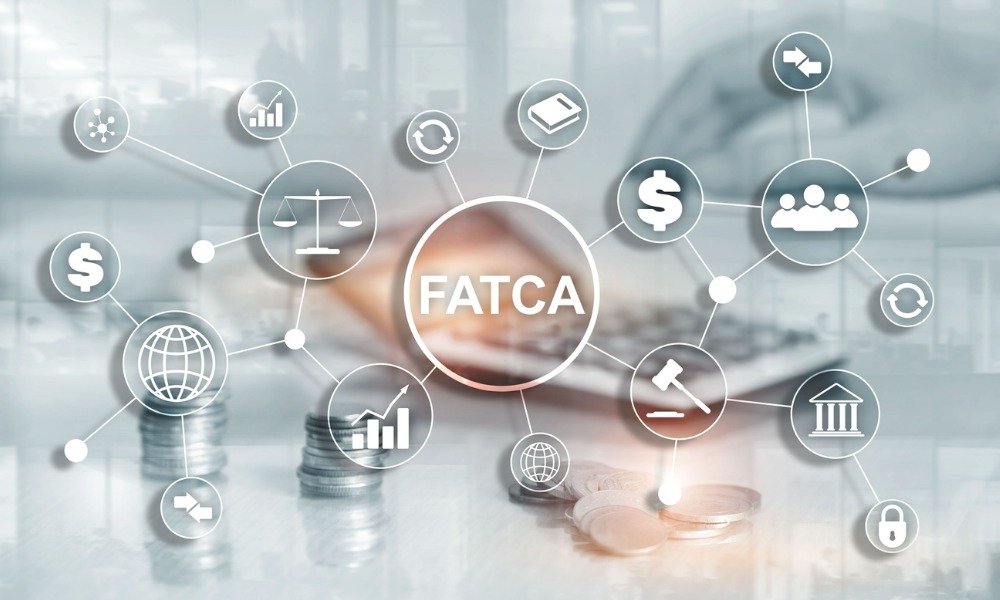Provisions do not constitute unreasonable search or seizure, court says

The Federal Court of Appeal (FCA) recently dismissed an appeal challenging the constitutionality of Canadian provisions implementing the Foreign Account Tax Compliance Act (FATCA) − a US federal law enacted in 2010.
In Deegan v. Canada (Attorney General), 2022 FCA 158, the appellants are residents and citizens of Canada. They are also US citizens by birth. As US citizens, they are subject to income tax in the US on their worldwide income. They are also subject to annual reporting obligations to the US Internal Revenue Service.
In 2014, Canada enacted Canada-United States Enhanced Tax Information Exchange Implementation Act (referred to as “impugned provisions”) to allow the implementation of the FATCA in Canada. The impugned provisions require Canadian financial institutions to file with the national revenue minister account information concerning their customers that may be subject to worldwide US taxation. Canada is required to disclose this information to the US.
The appellants brought an action with the Federal Court, alleging that the impugned provisions were ultra vires and unconstitutional. The hearing of the action was divided into two parts. Justice Luc Martineau dismissed the ultra vires claims. Subsequently, Justice Anne Mactavish set aside the constitutional claims. The appellants appealed the latter decision to the FCA.
In dismissing the appeal, the FCA found that the impugned provisions do not constitute an unreasonable search or seizure for purposes of s. 8 of the Charter.
According to the FCA, the right under s. 8 is breached if two requisites exist. First, there is search and seizure. Second, the search or seizure is unreasonable. Justice Judith Woods found that the first requisite was met.
“The Federal Court discussed the first requirement very briefly, noting the parties’ agreement that the impugned provisions contemplate a seizure,” Justice Woods wrote. “For purposes of this appeal, I assume that adherence to the impugned provisions constitutes a seizure.”
As for whether the seizure is unreasonable, the FCA noted that the general principle was to consider all the circumstances and assess whether the public interest in requiring a seizure outweighs the privacy interests of affected persons. Ultimately, it ruled that the second requisite is lacking since the public interest outweighs the privacy interests of the appellants. Therefore, the contemplated seizure is reasonable.
In reaching that conclusion, the FCA first determined Canada’s purpose in enacting the impugned provisions. The appellants argued that the purpose was to facilitate the interests of the US. Thus, the impugned provisions were not enacted to address a harm, gap, or concern within Canada. The FCA disagreed.
The FCA upheld the Federal Court’s finding that the impugned provisions were enacted principally to address a concern within Canada, particularly to avoid the potentially catastrophic impact of FACTA on Canadian financial institutions, their customers, and the Canadian economy.
“Although the appellants suggest that this raises a question of law, it is either a question of fact or mixed fact and law to which deference should be given,” Justice Woods wrote. “The Federal Court’s finding does not give rise to a reviewable error, and indeed the Federal Court’s finding is amply supported by the record.”
The appellants also argued that the US might use the seized information to advance a criminal prosecution into tax evasion, and this possibility was a significant intrusion into the privacy interests of affected persons. For the appeal, the FCA assumed that seized information might be used for a criminal prosecution for tax evasion in the US.
But concerning audit materials, the FCA upheld the Federal Court’s finding that taxpayers have little privacy interest in the materials and records they are obliged to keep under the Income Tax Act and produce during an audit, and there is nothing preventing auditors from passing to investigators their files containing validly obtained audit materials.
“Accordingly, s. 8 does not prevent audit material from being used for a criminal prosecution by the [Canada Revenue Agency],” Justice Woods wrote.
The appellants also suggested that the impugned provisions were “harsh or burdensome.” The FCA rejected this argument.
The FCA determined that the impugned provisions are an example of international cooperation in the administration of income tax laws, and such cooperation is widely accepted and has been strengthened in recent years. Moreover, the FCA added that the appellants have not demonstrated that the impugned provisions are more intrusive than is necessary to be effective, or that Canada could have achieved a more favourable outcome for affected persons.
“The appellants’ submissions, considered together or separately, do not affect the Federal Court’s conclusion that the contemplated seizure is reasonable for purposes of s. 8 of the Charter,” Justice Woods concluded.










